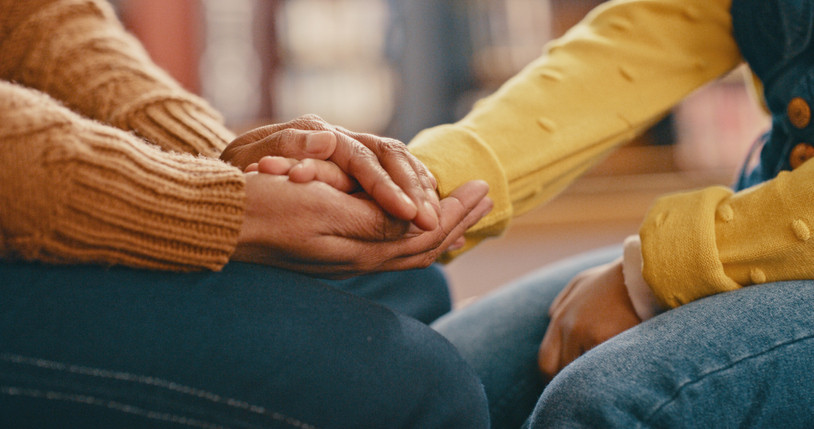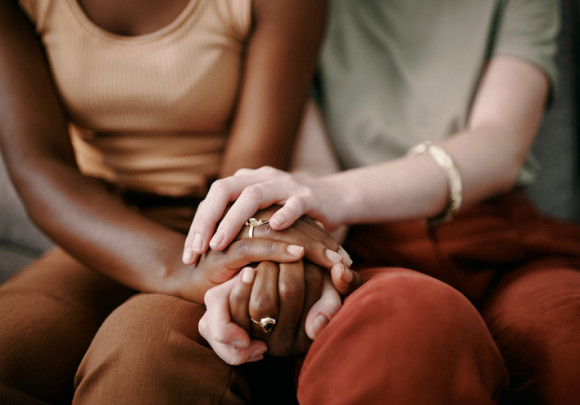Time Required
10 minutes to read about how to make an effective apology. The amount of time the apology takes depends on the nature of the offense and the reparations you plan to make.
How to Do It
When you realize you have harmed someone and you decide that you want to apologize, follow these steps:
- Acknowledge the offense. Acknowledging the offense is an essential element of a good apology, but many apologies don’t do this adequately. Apologies are most likely to be well-received if you show that you recognize who was responsible, who was harmed, and the nature of the offense. For example, saying “I made a mistake” is more effective than saying “Mistakes were made,” which fails to allocate responsibility. Similarly, acknowledging that harm occurred is better than making vague statements that minimize the legitimacy of the offended person’s grievances (e.g., “I’m sorry you feel hurt”) or fail to acknowledge the specific offense (e.g., “I’m sorry for whatever I said yesterday” rather than “I’m sorry for making that insensitive joke”).
- Provide an explanation. In some cases, it’s helpful to explain an offense, especially to convey that it was not intentional and that it will not happen again. But explanations that are long-winded, sound like excuses, or blame the victim (e.g., “You were really getting on my nerves”) tend to be counterproductive. It’s better to say, “There’s no excuse for my behavior” than to offer a shallow defense.
- Express remorse. When you hurt someone, it’s natural to feel shame, humiliation, or remorse. Expressing these feelings communicates that you recognize and regret the suffering you caused. Be careful of phrases like “That was uncharacteristic of me,” which might convey that you aren’t taking full ownership for what happened. Instead, acknowledge your disappointment in yourself and your commitment to improve.
- Make amends. A good apology should include efforts to repair the damage done. Reparation for tangible offenses such as loss of property might involve compensation or replacement, whereas reparation for less tangible offenses such as a violation of trust might involve taking steps to improve your behavior, such as attending marriage counseling. When considering how to best make amends, be sure to ask the offended person what would mean the most to them, rather than simply doing something to relieve your own feelings of guilt. Self-punishment, for example, might alleviate guilt without actually benefitting the victim.
Why You Should Try It
Apologizing for an offense is an important step towards forgiveness and reconciliation. But not all apologies are equally effective. In an effort to avoid blame, we sometimes offer apologies that are hedged or incomplete, and these half-baked apologies are less likely to be well-received. In some cases they may even backfire, fueling hurt and resentment.
It takes courage and vulnerability to admit wrongdoing and try to make things right; there’s always the possibility that our efforts will be rebuffed. But given the healing potential of apology for all parties, it’s a worthy effort—even if forgiveness isn’t the end result.
Why It Works
Apologies that include these elements are more likely to be effective because they satisfy the psychological needs of the offended person. They can restore the offended person’s sense of dignity, validating that they are not to blame and did not deserve to be hurt. They can give the offended person an opportunity to express their feelings and grieve their losses, and in some cases they can contribute to a sense of justice. A sincere apology can also reassure victims that they are safe from further harm, making them more likely to trust the offender again.
Evidence That It Works
Lewicki, R. J., Polin, B., & Lount, R. B. (2016). An exploration of the structure of effective apologies. Negotiation and Conflict Management Research, 9(2), 177-196.
American adults rated apologies for a trust violation as more effective when they contained a greater number of the following elements: an acknowledgment of responsibility, an explanation of what went wrong, an expression of regret, an offer of repair, a declaration of repentance, and a request for forgiveness. An acknowledgement of responsibility and an offer of repair were the most important elements, while a request for forgiveness was the least important.
Who Has Tried the Practice?
Several studies have looked at the common elements of apologies in different cultures, and what makes them effective:
- Dutch and Turkish college students completed surveys about hypothetical workplace conflicts. Both groups were more forgiving and less likely to retaliate if the offender apologized by expressing remorse and admitting blame.
- Persian adults were observed during naturally occurring apologies. Researchers found that explicit apologies, acknowledgement of responsibility, and requests for forgiveness were commonly used.
- Sudanese adults verbally responded to situations of offense in a lab. Explanations, expressions of responsibility, offers of repair, and promises of forbearance were the most frequently used apology strategies.
More research is needed to explore whether, and how, the impact of this practice extends to other groups and cultures.
Keep in Mind
It may be helpful to allow the victim to voice their concerns and feel understood before you apologize, depending on the situation. Apologies offered later in a conversation were more effective than apologies offered at the beginning of the conversation for American college students.
Apologizing may come more naturally to women and people in certain cultures. Jordanian and Japanese adults were more likely than American adults to engage in effective apology strategies. Women are more likely to apologize than men, and men to avoid responsibility for their offenses through denial, aggressive justifications, and victim-blaming. You may also find it harder to apologize to a family member or close friend. American, Japanese, Korean, and Chinese college students were more likely to apologize in distant relationships than in close ones.
Adapting this exercise to your own culture and language may provide additional benefits. Ghanaian married couples were more likely to forgive when the offending partner included bodily gestures like bowing, holding hands, and touching feet. Indonesians and Iranians often apologized using language-specific requests for forgiveness rather than an explicit “I’m sorry.” Jordanian men frequently incorporated cultural proverbs into their apologies.
Apologies may not always be effective in restoring relationships, particularly for certain racial offenses. American undergraduates imagined being the client of a therapist who committed a racial microaggression against them. Whether the therapist apologized or not, the students reported equally poor impressions of the therapist.
Note that this exercise is meant for apologies related to trust violations, not for asking favors. (In some cultures, such as Japan and Korea, it is common to apologize when asking for favors.)
Sources
Aaron Lazare, M.D., Former Chancellor and Dean of the University of Massachusetts Medical School and author of On Apology
For More
Lazare, A. (2004). Making Peace Through Apology. Greater Good.
Lazare, A. (2004). What an Apology Must Do. Greater Good.
References
Bataineh, R. F., & Bataineh, R. F. (2006). Apology strategies of Jordanian EFL university students. Journal of Pragmatics, 38(11), 1901–1927.
Bataineh, R. F., & Bataineh, R. F. (2008). A cross-cultural comparison of apologies by native speakers of American English and Jordanian Arabic. Journal of Pragmatics, 40(4), 792–821.
Cupach, W. R., & Imahori, T. T. (1993). Managing social predicaments created by others: A comparison of Japanese and American facework. Western Journal of Communication, 57(4), 431–444.
Exline, J. J., Root, B. L., Yadavalli, S., Martin, A. M., & Fisher, M. L. (2011). Reparative behaviors and self-forgiveness: Effects of a laboratory-based exercise. Self and Identity, 10(1), 101–126.
Frantz, C. M., & Bennigson, C. (2005). Better late than early: The influence of timing on apology effectiveness. Journal of Experimental Social Psychology, 41(2), 201–207.
Guan, X., Park, H. S., & Lee, H. E. (2009). Cross-cultural differences in apology. International Journal of Intercultural Relations, 33(1), 32–45.
Hamilton, V. L., & Hagiwara, S. (1992). Roles, responsibility, and accounts across cultures. International Journal of Psychology, 27(2), 157–179.
Itoi, R., Ohbuchi, K., & Fukuno, M. (1996). A cross-cultural study of preference of accounts: Relationship closeness, harm severity, and motives of account making. Journal of Applied Social Psychology, 26(10), 913–934.
Lee, H. E. (2014). The effectiveness of apologies and thanks in favor asking messages: A cross-cultural comparison between Korea and the United States. International Journal of Intercultural Relations, 43, 335–348.
Lee, H. E., Park, H. S., Imai, T., & Dolan, D. (2012). Cultural differences between Japan and the United States in uses of “apology” and “thank you” in favor asking messages. Journal of Language and Social Psychology, 31(3), 263–289.
Nureddeen, F. A. (2008). Cross cultural pragmatics: Apology strategies in Sudanese Arabic. Journal of Pragmatics, 40(2), 279–306.
Ohbuchi, K. I., Suzuki, M., & Takaku, S. (2003). Strategicness/authenticity of accounts and their instrumental/non-instrumental variables: A cross-cultural examination. Tohoku Psychologica Folia, 62, 57–74.
Osei-Tutu, A., Dzokoto, V. A., Oti-Boadi, M., Belgrave, F. Z., & Appiah-Danquah, R. (2019). Explorations of forgiveness in Ghanaian marriages. Psychological Studies, 64(1), 70–82.
Overstreet, A. K., Pomerantz, A. M., Segrist, D. J., & Ro, E. (2021). Should psychotherapists apologise after microaggressions? An empirical analogue study of perceptions of therapists. Counselling & Psychotherapy Research, 21(2), 251–259.
Schumann, K., & Ross, M. (2010). Why women apologize more than men: Gender differences in thresholds for perceiving offensive behavior. Psychological Science, 21(11), 1649–1655.
Shafa, S., Harinck, F., & Ellemers, N. (2017). Sorry seems to be the hardest word: Cultural differences in apologizing effectively. Journal of Applied Social Psychology, 47(10), 553–567.
Shariati, M., & Chamani, F. (2010). Apology strategies in Persian. Journal of Pragmatics, 42(6), 1689–1699.
Sugimoto, N. (1997). A Japan-U.S. comparison of apology styles. Communication Research, 24(4), 349–369.
Wouk, F. (2006). The language of apologizing in Lombok, Indonesia. Journal of Pragmatics, 38(9), 1457–1486.
A heartfelt apology may inspire forgiveness. When you feel hurt, do you forgive and forget, or are you prone to hold a grudge? Take our Forgiveness Quiz to find out.







Comments
and Reviews
Graham Pouter
Lincoln Jr. Peñaranda
Jonas Hjalmar Blom
It was an easy "exercise", yet it made a great shift in how me and my beloved explained our dispute this morning. She apologized me back, and we are about to sit down and try to come to a common understanding of what happened.
Vi
It went better than I expected when I adapted my apologies this way. It was hard at first since I tend to want to 'justify/explain myself' because I don't want to be misunderstood. I think I can improve on this the more I try it. I also noticed that apologies aren't effective only because of (eloquently) spoken words but also with the tone of voice and genuinity.
Josie Ruggiero-Khan
Susie Gardner
The Greater Good Toolkit
Made in collaboration with Holstee, this tookit includes 30 science-based practices for a meaningful life.
The Greater Good Toolkit
Made in collaboration with Holstee, this tookit includes 30 science-based practices for a meaningful life.